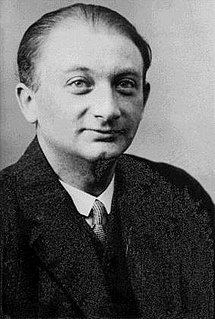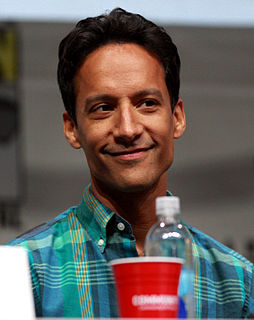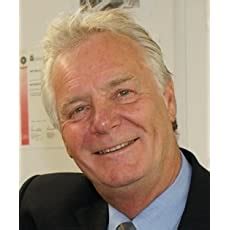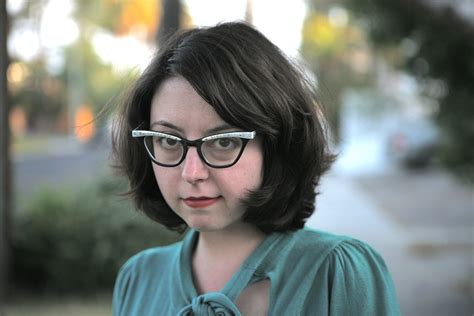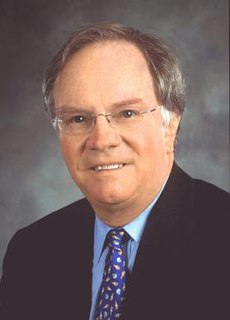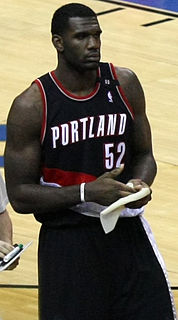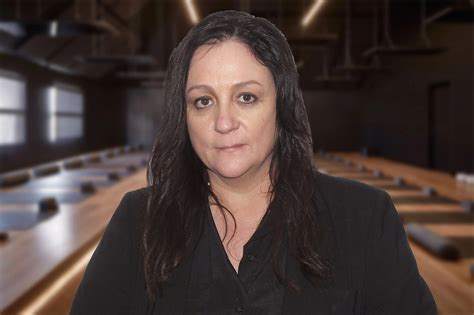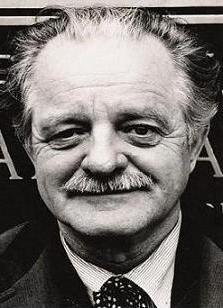Top 702 Volume Quotes & Sayings - Page 11
Explore popular Volume quotes.
Last updated on December 4, 2024.
The government in business may waste time and money without rendering service. In the end the public pays in taxes. The corporation cannot waste or it will fall. It cannot make unfair rulings or give high-handed, expensive service, for there are not enough people willing to accept inferior service to make a volume of business that will pay dividends.
Love--what a volume in a word, an ocean in a tear, A seventh heaven in a glance, a whirlwind in a sigh, The lightning in a touch, a millennium in a moment, What concentrated joy or woe in blest or blighted love! For it is that native poetry springing up indigenous to Mind, The heart's own-country music thrilling all its chords, The story without an end that angels throng to hear, The word, the king of words, carved on Jehovah's heart!
I suspect that relatively few people will sit down and read 1250 pages [ of The Enduring Authority of the Christian Scriptures.] all the way through from cover to cover. There may be some, but not everybody. But there are many, many, many different Christian, theological, pastoral, specialisms that are covered by one section or another of the book and this will become, therefore, a resource volume for many people.
The problem of environmental children's health is very urgent in Russia. Environmental situation now is the main factor, which determines young generation's health... the volume of pollutant emissions in atmosphere and water grew and scale of ecological man-caused catastrophes increased. More than half of Russian territories, where 60-70 percent of the of population lives, have unsafe ecological situation.
Is there in painting an effect which arises from the being together of repose and energy in the artist's mind? - can both repose and energy be seen in a painting's line and color, plane and volume, surface and depth, detail and composition? - and is the true effect of a good painting on the spectator one that makes at once for repose and energy, calmness and intensity, serenity and stir?
It seems to be the special peculiarity of human beings that they reflect: they think about thinking and know that they know. This, like other feedback systems, may lead to vicious circles and confusions if improperly managed, but self-awareness makes human experience resonant. It imparts that simultaneous "echo" to all that we think and feel as the box of a violin reverberates with the sound of the strings. It gives depth and volume to what would otherwise be shallow and flat.
It is going to be necessary that everything that happens in a finite volume of space and time would have to be analyzable with a finite number of logical operations. The present theory of physics is not that way, apparently. It allows space to go down into infinitesimal distances, wavelengths to get infinitely great, terms to be summed in infinite order, and so forth; and therefore, if this proposition [that physics is computer-simulatable] is right, physical law is wrong.
Brian Walker and David Salt have written a thoughtful and powerful book to help resource users and managers put resilience thinking into practice and aim toward increasing the sustainability of our world. I urge public officials, scholars, and students in public policy programs to place this volume on their list of must-read books. It is a powerful antidote to the overly simplified proposals too often offered as solutions to contemporary problems at multiple scales.
The industrial leader of the 20th century was a system-builder. He was a visionary in terms of what could be built; got the capital together; certainly convinced investors that it was possible; and then ran a high-volume production system that would spew out a vast array of almost identical goods and services. They would be changed from time to time; there was research and development, to be sure. But the system was built around production, not innovation.
I recall this passage as the hour of its first fully coming over me that she was a beautiful liberal creature. I had seen her personality in glimpses and gleams, like a song sung in snatches, but now it was before me in a large rosy glow, as if it had been a full volume of sound. I heard the whole of the air, and it was sweet fresh music, which I was often to hum over.(Sir Edmund Orme)
We are all a volume on a shelf of a library, a story unto ourselves, never possibly described with one word or even very accurately with thousands. A person is never as quiet or unrestrained as they seem, or as bad or good, as vulnerable or as strong, as sweet or as fiesty; we are thickly layered, page upon lying page, behind simple covers. And love - it is not the book itself, but the binding. It can rip us apart or hold us together.
Working with different people anyway is like life and meeting different people... as long as you can be empathetic, you can take a bit of them on and see what you can do to help their process. That said, my relationship with Woody Allen was trying to hang on his every word so that I could tell everybody what he said afterwards. But certainly, he was a very good example of somebody who you didn't hear talk above a very low volume for the entire time he was on-set.
The Web is cool, but the library is magic. Where else can the spirit of generations of writers stir your soul? So many writers talk about libraries setting them on their magical paths, it's almost a groaner. But we know it's true. Wander through the stacks and you can feel the dreams, the unique worlds bubbling within each volume. The magic enters you as if by osmosis. On the Web, you may feel clever, lucky and driven to download--but rarely inspired to dream and to write.
Although the noise of the chattering clientele is much more significant than the topics of their chatter, it does finally constitute that type of social and indistinct expression that we refer to as rhubarb. The very particular volume in which people tell each other their news seems to generate all by itself that acoustic chiaroscuro, a sounding murk, in which every communication seems to lose its edges, truth projects the shadow of a lie, and a statement seems to resemble its opposite.
Once upon a midnight dreary, while I pondered, weak and weary, Over many a quaint and curious volume of forgotten lore--While I nodded, nearly napping, suddenly there came a tapping, As if some one gently rapping, rapping at my chamber door. "'Tis some visitor," I muttered, "tapping at my chamber door--Only this and nothing more.
I lately met with an old volume from a London bookshop, containing the Greek Minor Poets, and it was a pleasure to read once moreonly the words Orpheus, Linus, Musæus,--those faint poetic sounds and echoes of a name, dying away on the ears of us modern men; and those hardly more substantial sounds, Mimnermus, Ibycus, Alcæus, Stesichorus, Menander. They lived not in vain. We can converse with these bodiless fames without reserve or personality.
I was actually really impressed by how many awkward stories we had, ranging from bad haircuts to one guy told us about being on the beach and he threw a Frisbee and it hit a lady in the head. His immediate reaction was to turn and he found a kid next to him and pointed to the kid, it's those kinds of moments. I was really impressed with the volume of fun stories we got to play with. No one was a loser in this game; they were all winners .
What I've grown to hate in my 'old age' is shouting directors. I find anybody who screams and shouts to be difficult to work with... especially because the people who scream and shout tend to do it at runners, and not at the main actors. They make a great amount of noise and it's often at someone who is an easy target. I love working with people who are calm, even if my role is peripheral. I like people who realise that this is just a film... that we're not going over the top in No Man's land and screaming for our lives. There's just nothing to be gained by volume.
The strong and undeniable fundamentals of low-cost clean energy and the cheapest petrochemical feed-stocks in the world will prevail we believe and we're seeing the demand pool beginning to grow. We have continued to position ourselves in a way that will catch this very sustainable and fundamentally supported wave of volume growth and at the same time, help our customer base achieve their lofty goals of growth as well.
It would be erroneous to say Sohrab was quiet. Quiet is peace. Tranquility. Quiet is turning down the volume knob on life. Silence is pushing the off button. Shutting it down. All of it. Sohrab's silence wasn't the self imposed silence of those with convictions, of protesters who seek to speak their cause by not speaking at all. It was the silence of one who has taken cover in a dark place, curled up all the edges and tucked them under.
The Dancer believes that his art has something to say which cannot be expressed in words or in any other way than by dancing... there are times when the simple dignity of movement can fulfill the function of a volume of words. There are movements which impinge upon the nerves with a strength that is incomparable, for movement has power to stir the senses and emotions, unique in itself. This is the dancer's justification for being, and his reason for searching further for deeper aspects of his art.
I couldn't portray a women in all her natural loveliness.. I haven't the skill. No one has. I must, therefore, create a new sort of beauty, the beauty that appears to me in terms of volume of line, of mass, of weight, and through that beauty interpret my subjective impression. Nature is mere a pretext for decorative composition, plus sentiment. It suggests emotion, and I translate that emotion into art. I want to express the absolute, not merely the factitious woman.
If we take in our hand any volume; of divinity or school metaphysics, for instance; let us ask, Does it contain any abstract reasoning concerning quantity or number? No. Does it contain any experimental reasoning concerning matter of fact and existence? No. Commit it then to the flames: for it can contain nothing but sophistry and illusion.
What would you call America's most priceless asset? Surely not its limitless natural resources, not its matchless national wealth, not its unequalled store of gold, not its giant factories, not its surpassing railroads, not its unprecedented volume of cheap power. Is not its most priceless asset the character of its people, their indomitable self-confidence, their transcendent vision, their sleepless initiative and, perhaps above all, their inherent, irrepressible optimism?
There's a fantastic, thousand-page book by David Thomson about [David O. Selznick]. Again, it's not the best argument or the best advertisement for his story, because most people aren't going to read a thousand-page book. But I feel like the rise and fall and the work [Mayer] produced - not just the movies, but the memos, the volume of writing - he's just so passionate, and that's really exciting.
Saudi Arabian oil production is at or very near its peak sustainable volume (if it did not, in fact peak almost 25 years ago), and is likely to go into decline in the very foreseeable future. There is only a small probability that Saudi Arabia will ever deliver the quantities of petroleum that are assigned to it in all the major forecasts of world oil production and consumption.
Regarding R. H. Blyth: Blyth's four volume Haiku became especially popular at this time [1950's] because his translations were based on the assumption that the haiku was the poetic expression of Zen. Not surprisingly, his books attracted the attention of the Beat school, most notably writers such as Allen Ginsberg, Gary Snyder and Jack Kerouac, all of whom had a prior interest in Zen.
Auto da Fay reveals the trickles of a creative sensibility that later became a tide, but essentially, Weldon the writer emerges only at the very end of this volume, in conjunction with her finding and marrying her husband of 30 years, Ron Weldon. In this sense, it is half a memoir, the private background story to the public future. (...) The reader is forced to re-evaluate the spectacular weirdness of Weldon's fiction: having lived such a life any other kind would seem insipid.
The logic: Reading is a private pursuit, one that often takes place behind closed doors. A young lady might retreat with a book, might even take it into her boudoir, and there, reclining on here silken sheets, imbibing the thrills and chills manufactured by writerly quills, one of her hands, one not absolutely needed to grip the little volume, might wander. The fear, in short, as one-handed reading. [p. 146]
One must always be careful of books,' said Tessa, 'and what is inside them, for words have the power to change us.' 'I'm not sure a book has ever changed me,' said Will. 'Well there is one volume that promises to teach one how to turn oneself into an entire flock of sheep-' 'Only the very weak minded refuse to be influenced by literature and poetry,' said Tessa, determined not to let him run wildly off with the conversation.
We are living at a time when the Prostestant church is rediscovering the truth that transformation in Christ occurs through the disciplines of formation. Finally, Adele Calhoun has pulled all of these together into one volume, complete with clear definitions and practices of a variety of ways that God uses to grow our lives. No longer do you have to root through scattered pieces of paper, nor a chapter here and there to get the big picture of the tried and true disciplines. This is one resource you will want to have at your fingertips.
These days, my main guitar amps have been Magnatone. They're beautiful. Magnatones have actual tremolo, which I recently learned about guitar amps. Often what guitar amps call vibrato is really just a volume Up and Down. But Magnatone has a true vibrato, which is pitch bending. And so, it's just a lush sound.
The pornography of violence of course far exceeds, in volume and general acceptance, sexual pornography, in this Puritan land of ours. Exploiting the apocalypse, selling the holocaust, is a pornography. For the ultimate selling job on ultimate violence one must read those works of fiction issued by our government as manuals of civil defense, in which you learn that there's nothing to be afraid of if you've stockpiled lots of dried fruit.
Most young dealers of the Silicon Chip Era regard a reference library as merely a waste of space. Old Timers on the West Coast seem to retain a fondness for reference books that goes beyond the practical. Everything there is to know about a given volume may be only a click away, but there are still a few of us who'd rather have the book than the click. A bookman's love of books is a love of books, not merely of the information in them.
The incomparable James Walvin has done it again: he has crafted a beautifully written and deeply informed single volume history of the Atlantic slave trade and its consequences on three continents. This book is full of fresh ideas and astounding detail; it is at once great storytelling, punctuated with real people and voices, and an unblinking analysis of numerous great questions and paradoxes about the power of slavery in creating the Atlantic world over four centuries.
Soaps are really like boot camp for acting. You learn about the industry, you learn about being on stage, and you learn about showing up on time. The sheer volume of work, on a daily basis, blows your mind and forces you to really work that muscle of memorization and just being able to change things on your feet.
From MARS Volume 3 by Fuyumi Soryo: Kira: “Why do you go through all that just to race? I guess asking that is the same thing as asking why I draw….probably because I’m alive….that’s all there is to it. I sense colors in you. They’re strong and beautiful….and sad. I wondered what your colors were for a long time. They’re the colors of the sunset…the blazing shades of a sunset that burn just before the darkness sets in. You said it was nothing, but there’s no one as alive as you.
If you aren’t hearing your inner voice, it could mean you’re overburdened or not stimulated enough, or that you’ve learned to shut it off because the people around you have refused to engage it. Perhaps you’ve had a hardening of the arteries around your soul. I believe the choices we make in our lives and the people and places surrounding us increase the volume of our inner voice, decrease it, or annihilate it entirely.
Remembering our past, carrying it around with us always, may be the necessary requirement for maintaining, as they say, the wholeness of the self. To ensure that the self doesn’t shrink, to see that it holds on to its volume, memories have to be watered like potted flowers, and the watering calls for regular contact with the witnesses of the past, that is to say, with friends. They are our mirror; our memory; we ask nothing of them but that they polish the mirror from time to time so we can look at ourselves in it.
I rolled back onto the lawn and pressed my forehead to the ground again and made the noise that Father calls groaning. I make this noise when there is too much information coming into my head from the outside world. It is like when you are upset and you hold the radio against your ear and you tune it halfway between two stations so that all you get is white noise and then you turn the volume right up so that this is all can hear and then you know you are safe because you cannot hear anything else
Let's set the existence-of-God issue aside for a later volume, and just stipulate that in some way, self-replicating organisms came into existence on this planet and immediately began trying to get rid of each other, either by spamming their environments with rough copies of themselves, or by more direct means which hardly need to be belabored. Most of them failed, and their genetic legacy was erased from the universe forever, but a few found some way to survive and to propagate.
F.R. Leavis's "eat up your broccoli" approach to fiction emphasises this junkfood/wholefood dichotomy. If reading a novel--for theeighteenth century reader, the most frivolous of diversions--did not, by the middle of the twentieth century, make you a better person in some way, then you might as well flush the offending volume down the toilet, which was by far the best place for the undigested excreta of dubious nourishment.
As a matter of fact 25% of our U.S. investment banking business comes out of our commercial bank. So it's a competitive advantage for both the investment bank - which gets a huge volume of business - and the commercial bank because the commercial bank can walk into a company and say, "Oh, if you need X, Y and Z in Japan or China, we can do that for you."
The ratio of authentic literature to trash in pornography may be somewhat lower than the ratio of novels of genuine literary meritto the entire volume of sub-literary fiction produced for mass taste. But it is probably not lower than, for instance, that of another somewhat shady sub-genre with a few first-rate books to its credit, science fiction.
It comes up over and over and over again that a ten times increase in the weight-oriented density of batteries or the volume metric, the space-oriented density of batteries, would enable so many other moonshots that that's one that just constantly comes up over and over again, and we will start that moonshot if we can find a great idea.
The cross is the foundation of the Bible: If you have not yet found out that Christ crucified is the foundation of the whole volume, you have hitherto read your Bible to very little profit. Your religion is a heaven without a sun, an arch without a keystone, a compass without a needle, a clock without a spring or weights, a lamp without oil. It will not comfort you; it will not deliver your soul from hell.
We saw Time's varied traces Were deep on every hand - Indeed, upon the people, More marked than on the land. The bands that once with firmness Could grasp the axe and blade, Now move with trembling motion, By strength of nerve decayed. The change in form and feature And furrows on the cheek Of Time's increasing volume, In plain, round numbers speak. And thus, as in a mirror's Reflection, we were told, With stereotyped impressions, The fact of growing old.
Republicans know well that a change of rhetorical pace is necessary. But efforts by their leaders to damp down the bellicosity of newly elected Tea Party types is running into the fact that the Tea Partiers have only the high volume setting on their amplifiers, just like Palin. They're like a couple having a fight at a funeral; politely sotto voce, then suddenly bursting out fortissimo with their plaints and accusations.
Today we hear a great deal about Organizational Men, Mass Culture, Conformity, the Lonely Crowd, the Power Elite and its Conspiracy of Mediocrity. We forget that the very volume of this criticism is an indication that our society is still radically pluralistic. Not only are there plenty of exceptionalists who take exception to the stereotyping of the mass culture but that very string of epithets comes from a series of books that have been recent best-sellers, symptoms of a popular, living tradition of dissent from things as they are.
Going into a game, I know that I'm going to run a lot. I know I'm going to have a lot of volume, and I know that I'm going to get hit a lot, which is great. Sometimes we try to deliver some blows, too, try to break as many tackles as possible. We know it's going to hurt the next day. That's why we love the game.
Amy bit her lip. "I was so scared, Dan. I couldn't think. She shook her head. "I feel so ashamed of myself. If it wasn't for you, we would have been toast." "Whoa," Dan said. "If you're throwing a pity party for yourself, don't invite me." He poked her. "You were the one who got Jonah to find us. Awesome lung power. I thought you only used that volume to get me out of the bathroom.
Not ever having been an agent myself, my sense is that upper-level agents who have the most power, who can move people through the system more easily, are less willing to take on the volume of work to break somebody new. And then lower-level people, if they are willing to take on somebody new, they don't necessarily have as much sway, and it's harder for them to push somebody through.
In volume and velocity, the new media are making available testimony on a previously unimaginable scale. I'm neither as romantic about the new media landscape, nor cynical. But what's indisputable is the experimental energy that digital forms are unleashing. Among my students and among up-and-coming artists, I find myself startled by the creative responses to the technological, environmental, and political upheavals of our time.
I suppose as long as novels last, and authors aim at interesting their public, there must always be in the story a virtuous and gallant hero; a wicked monster, his opposite; and a pretty girl, who finds a champion. Bravery and virtue conquer beauty; and vice, after seeming to triumph through a certain number of pages, is sure to be discomfited in the last volume, when justice overtakes him, and honest folks come by their own.
When that happens [the demise of golf], old men will furtively beckon to their sons and, like fugitives from the guillotine recalling the elegant orgies at the court of Louis XV, will recite the glories of Portmarnock and Merion, of the Road Hole at St. Andrews, the sixth at Seminole, the eighteenth at Pebble Beach. They will take out this volume from its secret hiding place and they will say: "There is no question, son, that these were unholy places in an evil age. Unfortunately, I had a whale of a time."
The primary thing that any technology startup must do is build a product that's at least 10 times better at doing something than the current prevailing way of doing that thing. Two or three times better will not be good enough to get people to switch to the new thing fast enough or in large enough volume to matter.
Miss Prism: Do not speak slightingly of the three-volume novel, Cecily. I wrote one myself in earlier days. Cecily: Did you really, Miss Prism? How wonderfully clever you are! I hope it did not end happily? I don't like novels that end happily. They depress me so much. Miss Prism: The good ended happily, and the bad unhappily. That is what fiction means.














